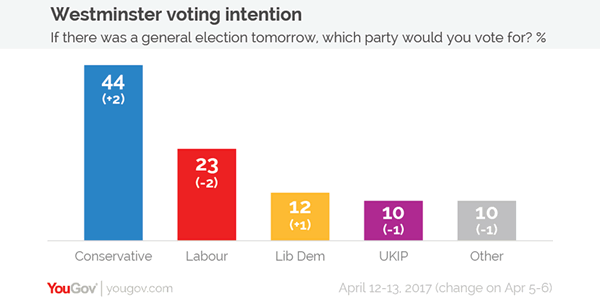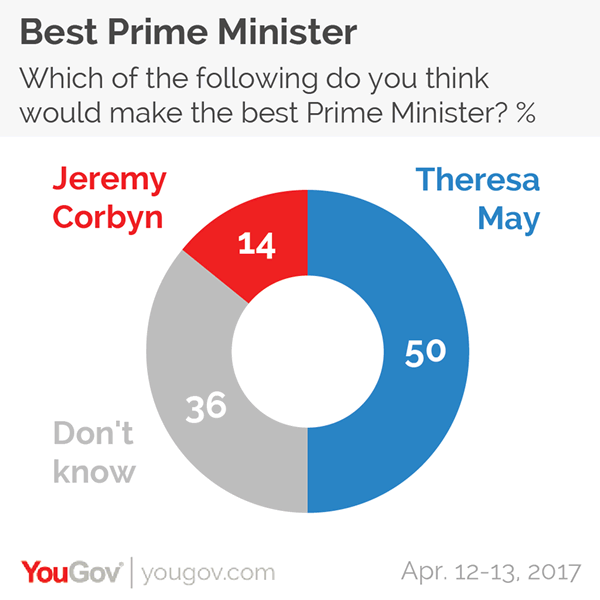Are world leaders nowadays keen on breaking their own promises? Just days after Donald Trump’s reversal of campaign pledge to label China as "currency manipulator", UK PM Theresa May announced that she would seek MPs’ support for an early general election to be held on June 8. The news came in less than a month after her affirmation that "the next election will be in 2020". GBPUSD erased earlier losses and jumped to a 4.5-month high of 1.2755 after the announcement, on expectations that a landslide victory of the Conservative Party would strengthen May’s mandate in the 2-year Brexit negotiations. FTSE100 has remained under pressure after slumping to the lowest level in 2 months, amidst heightened political uncertainty and a rally in sterling. While we do not rule out the possibility of near-term sterling strength, as traders priced in a Conservative victory in the snap election, we remain bearish on the currency’s longer term outlook as the tough Brexit negotiations return to the spotlight.
The next UK general election was initially scheduled to be held on May 7, 2020. Yet, a snap election can be called if two thirds of MPs vote to hold it or if there is a no confidence vote in the government. Supports from Labor and LibDem signal that the motion should be passed in the parliament. May’s rationale of such move is to consolidate her power after Brexit was formally triggered in late March. As she noted, "at this moment of enormous national significance, there should be unity in Westminster, but instead there is division". She added that "Labour have threatened to vote against the final agreement we reached with the European Union" in recent weeks.
Both May and the market appear confident that the election outcome would serve its purpose. Opinion polls have been suggesting that support for Conservatives almost doubles that of Labor. Survey by Yougov/Times on April 12-13 on voting intention shows 44% support for Conservatives, up +2 percentage points from the prior week on 44%, while that for Labor slipped +2 percentage points to 23%,the lowest for the party since June 2009. Support for LibDem stayed at low teen.

Meanwhile, 50% of interviewees indicated that Theresa May would make the best PM Minister, compared with 14% for Labor’s Jeremy Corbyn.

Sterling’s volatility would remain elevated from now until the election. Yet, short-term rebound does not change our bearish view over the currency as the tough Brexit negotiations return to the spotlight. For the impacts of Brexit on GBP, please refer to: https://www.actionforex.com/action-insight/special-topics/98-fx-2017-gbp-brexit-uncertainty-haunting
